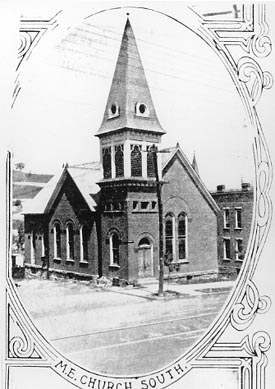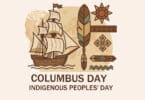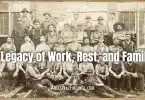Father’s Day hasn’t been celebrated in America for as long as Mother’s Day has, but it is no less important to us now. Indeed, it has become a treasured American holiday. However, Father’s Day is not only an American holiday. Its roots go back much longer than you might imagine. While it took until the Nixon administration for Father’s Day to become an accepted holiday in the United States, its foundations are in the Middle Ages. Here is what you need to know about the history of Father’s Day.
A primitive, early version of Father’s Day was being celebrated in the Catholic nations of Europe since medieval times. It was called Saint Joseph’s Day and was celebrated each year on March 19. It commemorated Joseph, the husband of Mary, and how he raised Jesus as his own. Joseph was held up to be the ideal example of earthly fatherhood. Other fathers were to reflect on his example and emulate it with all children under their care, biological or otherwise.
The Orthodox Christian church in the eastern part of Europe designated the second Sunday before the Nativity as the Sunday of the Forefathers. This holiday celebrated Jesus’s male ancestors, going all the way back to Adam, but with a particular emphasis on Abraham, who was the patriarch of the Jewish faith (and, by extension, the Christian church). God said to Abraham, “In thy seed shall all of the nations of the earth be blessed” (Genesis 12:3, 22:18). This holiday celebrates all of the fathers of the Bible in Jesus’s earthly family line, and also shows the contemporary fathers how they should be.
The official celebration of St. Joseph’s Day goes back to at least 1508 in the Catholic nations of Europe. Celebrating fatherhood of all kinds on St. Joseph’s Day (which was an unofficial holiday for a few centuries before being made a legitimate religious holiday) was being encouraged by Catholic church leaders going back to the late 1300s or early 1400s. The Franciscans are understood to be the first supporters of this kind of celebration. The celebration was brought to North America, Central America, and South America by Portuguese and Spanish explorers and settlers.
Of course, the Catholic church does not have a monopoly on celebrating fatherhood. The earlier Coptic Orthodox church was celebrating fatherhood on St. Joseph’s Day on July 20 each year as far back as the 400 A.D.s.
There is an International Men’s Day that many countries around the world celebrate on November 19 each year. This holiday celebrates all men and boys, including fathers. So, even in countries without an official Father’s Day, there is an informal one with this internationally celebrated holiday.
The Roman Catholic church still celebrates their Father’s Day on St. Joseph’s Day today, and they sometimes include their spiritual father, usually their parish priest, in the celebration. This depends on each individual church, but it is a common practice.
While Father’s Day seems to have been celebrated in Europe for centuries, its acceptance in the United States was not as easy as one might have imagined. Outside of people in the Catholic church, there was no official Father’s Day celebrated in the United States until the early twentieth century. The first Father’s Day celebration in the United States was celebrated in Fairmont, West Virginia on July 5, 1908, at the Williams Memorial Methodist Episcopal Church South, which is now called the Central United Methodist Church.
The celebration was initiated by a woman named Grace Golden Clayton, who was mourning the loss of her father in a December 1907 mining accident. In fact, 361 men, 250 of whom were fathers, were killed in that accident, which left thousands of children without fathers in the area. Grace suggested the Father’s Day celebration to her pastor at the church to honor all the fathers lost in that accident, and he agreed to do it.
Grace’s celebration was not celebrated outside of Fairmont. In fact, the sermon preached at the celebration was not even published, which was unusual for the time. Grace was also a quiet woman who did not promote another Father’s Day or talk to other people about it. It seems like one celebration was enough for her.
Other attempts at establishing a national Father’s Day were made around the country over the next several days, usually by women wishing to honor their own fathers, but they were soundly turned down. The number of people suggesting a national Father’s Day over the next few years led to many different people claiming that Father’s Day in the United States was their idea.
The acceptance of Father’s Day in the United Stated finally happened in 1910, when a woman named Sonora Smart Dodd wanted to honor her father, a Civil War veteran named William Jackson Smart, who had raised six children on his own after the loss of his wife. Sonora lived in Spokane, Washington, and convinced the pastor of her Presbyterian Church to give a Father’s Day sermon. She wanted it to be on June 5, which was her father’s birthday, but her pastor did not have enough time to prepare a sermon. Instead, it was celebrated on June 19, 1910, which was the third Sunday in June. Other pastors around the city also got on board with the idea, and Father’s Day was celebrated citywide in Spokane that year.
The celebration faded into obscurity in the 1920s while Sonora was away studying at the Art Institute of Chicago. However, she brought it back to town in the 1930s and began working to raise awareness of Father’s Day nationwide. She got manufacturers of things like ties, pipes, mugs, and other traditional gifts for fathers on board to help her promote it, as this would economically benefit them. The holiday began being celebrated in many places nationwide by 1938, but it was resisted by Americans for a long time because they viewed it as merely a commercial scheme to reproduce the success of the previously established Mother’s Day. Men’s retailers continued to promote the holiday, with the help of the newly established Father’s Day Council in New York, and they even incorporated some of the ridicule of the holiday into their advertisements.
Attempts to make Father’s Day a nationally recognized holiday continued for decades, but Congress did not like the commercial connotations of it. Presidents Woodrow Wilson and Calvin Coolidge tried, without success, to establish a national Father’s Day holiday. Eventually, President Lyndon B. Johnson issued the first official Father’s Day proclamation in the United States, making it the third Sunday in June. In 1972, President Richard Nixon signed a bill into law finally making Father’s Day a nationally recognized holiday.







